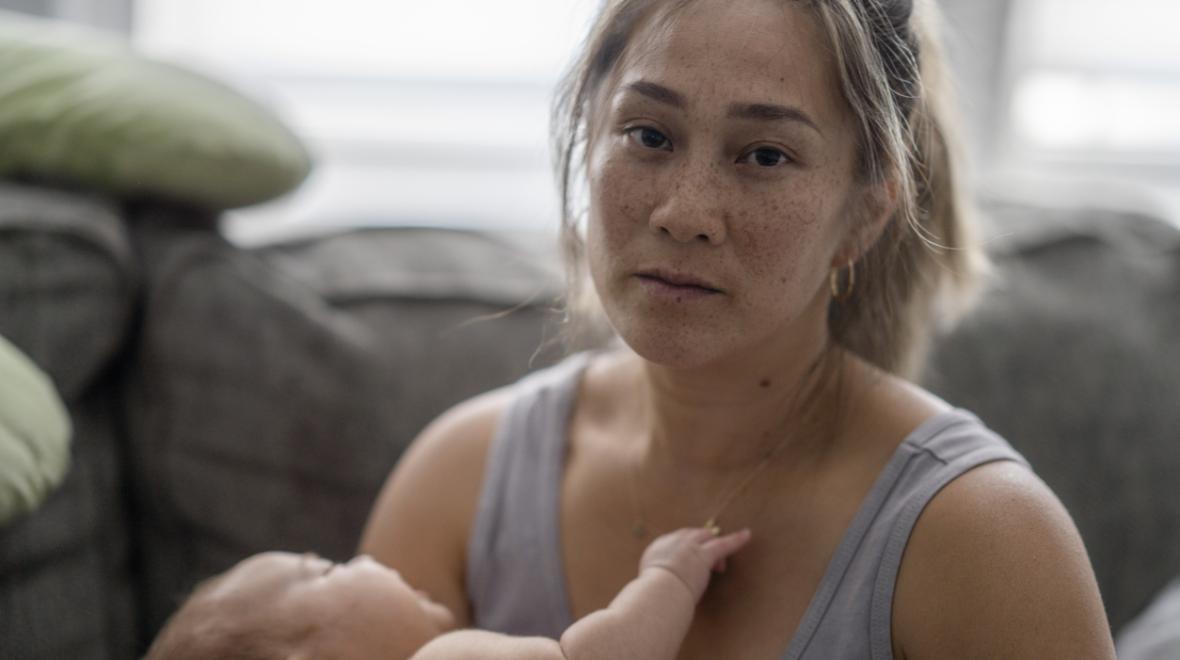
Photo:
iStock
It’s official: Stress on parents has been declared a public health crisis
The reality that parents are overwhelmed and under supported has been officially recognized by U.S. Surgeon General Vivek Murthy, who recently released an advisory identifying the mental health and well-being of parents as a public health issue. The advisory calls attention to the urgent need to support caregivers, recognizing that their well-being is crucial not just for the health of individual families, but for the next generation at large.
Moms are especially stressed
Dr. Whitney Casares, a Portland-based pediatrician and parent, sees the impact of these stressors in both her professional and personal life. Reflecting on Dr. Murthy’s advisory, she points out that modern caregivers — particularly mothers — are caught in an unsustainable cycle of trying to “do it all” while feeling like they are constantly falling short. “More than any generation before them, [women] face conflicting, unrealistic pressure to excel in their careers, maintain Pinterest-worthy homes and parent with perfection simultaneously,” she explains. Dr. Casares emphasizes that structural policy changes, such as paid parental leave and childcare support, are essential, but parents also need practical strategies to manage their daily responsibilities and set healthy boundaries to protect their own well-being.
Support for Washington parents is limited
In our state, the Family and Medical Leave Act (FMLA) and the Paid Family and Medical Leave program (PFML) provide eligible workers with up to 12 weeks of paid leave (or up to 16–18 weeks for combined medical and family leave) to care for a new child, recover from a serious illness or support a family member with a significant health condition. These programs offer partial wage replacement, ranging from 50 percent to 90 percent of a worker’s average weekly wage, with a maximum benefit of $1,427 per week. These policies aim to support families by ensuring some financial stability while taking time off for essential caregiving needs.
Critics of Washington’s FMLA and PFML programs point out that while these policies offer some relief, significant gaps remain for many families. The programs’ requirements exclude certain workers such as part-time, gig and newly-hired employees. Furthermore, the benefit’s limited duration, low wage replacement rates and bureaucratic hurdles make it challenging for many parents to take full advantage of this paid leave.
Parents of color face additional challenges
Lenice C. Emanuel, Executive Director of the Alabama Institute for Social Justice and a long-time advocate for child care reform, responded to the news by emphasizing the compounded challenges faced by many parents of color. Emanuel pointed out that parental stress is intensified by the broader issue of racism, which the U.S. Centers for Disease Control has also declared a public health threat. “These realities speak to the heightened daily stressors that are particularly acute for marginalized parents, especially single Black women,” she says. Here in King County, racism was declared a public health crisis on June 11, 2020.
For Emanuel and many other advocates, the link between parental stress and broader systemic inequities is clear. She points out that stress management must go beyond the individual level, requiring a societal commitment to supporting parents through policies that address the root causes of stress. “There is a direct connection between child care and a family’s quality of life. Ensuring affordable, accessible child care is critical to stabilizing families and promoting overall well-being,” Emanuel says.
U.S. birth rate declines while parental stress rises
Fewer Americans are choosing to procreate. The growing understanding of the realities of parental stress could be a contributing factor.
The birth rate in our state reflects the national decline. In Washington, the most recent data from the Department of Health shows 83,314 babies were born in 2022. A decade ago, in 2012, there were 87,417 recorded total births statewide. In other words, there was a nearly five percent decrease in births in Washington over the last decade.
According to a recent Pew Research survey, the number of U.S. adults under 50 who say they are unlikely to ever have children has surged, rising from 37 percent in 2018, to 47 percent in 2023. This survey also revealed that the majority of Americans feel a federal policy that ensures free childcare would be the number one way to encourage more people to start families. Other policy ideas included requiring employers to provide paid family leave, tax credits for parents and monthly payments for parents of minors.
Advocates such as Casares and Emanuel are urging lawmakers and community leaders to respond with meaningful change so parents can do the invaluable work of raising children without sacrificing their own health and well-being in the process.











